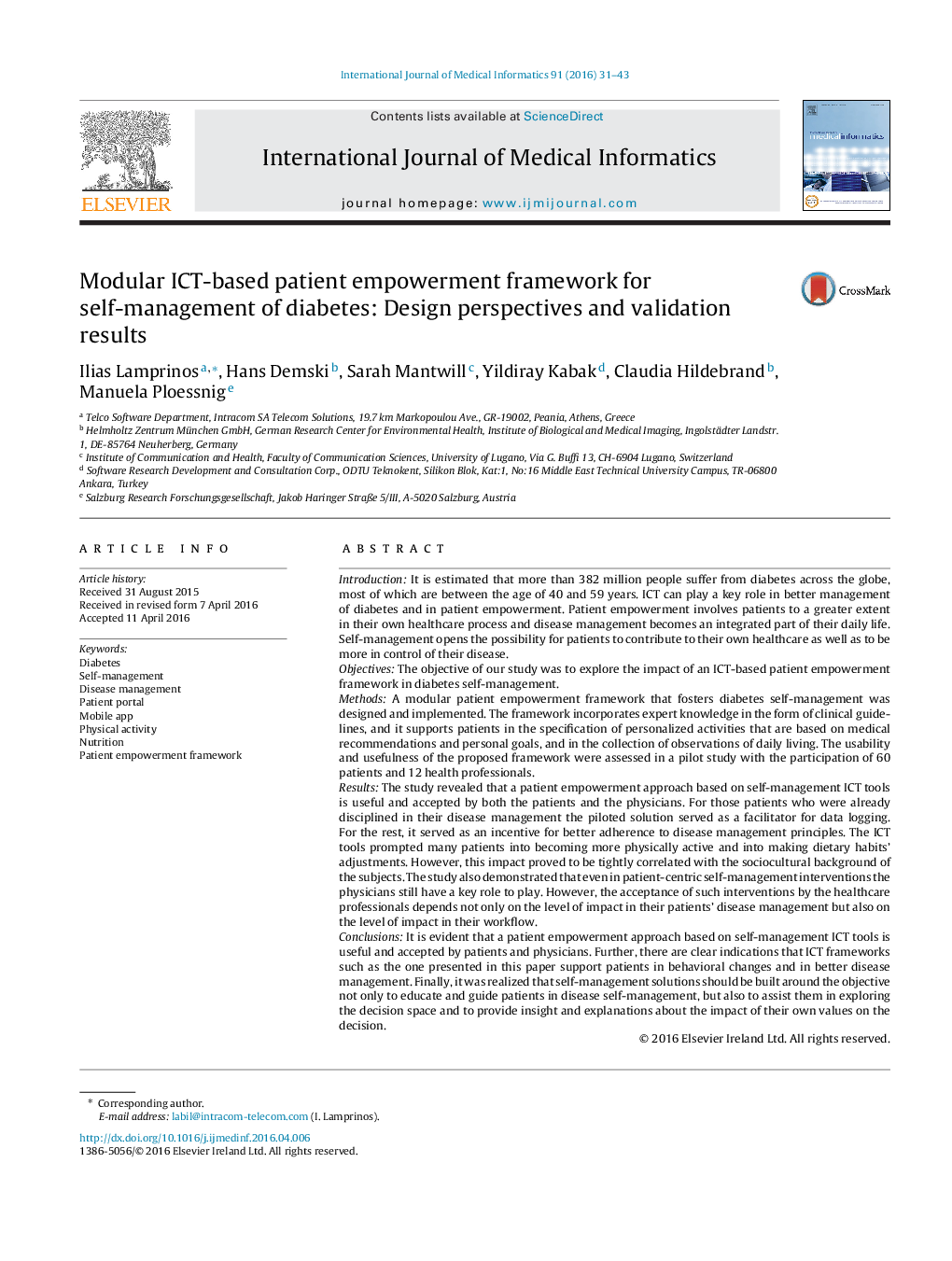| کد مقاله | کد نشریه | سال انتشار | مقاله انگلیسی | نسخه تمام متن |
|---|---|---|---|---|
| 516068 | 1449097 | 2016 | 13 صفحه PDF | دانلود رایگان |
• We implemented a modular patient empowerment framework for diabetes self-management.
• We examine its usability and usefulness in a study in two countries.
• ICT-based self-management facilitates adherence to disease management principles.
• Sociocultural backgrounds significantly affect ICT impact in disease self-management.
• Even in patient-centric self-management interventions, physicians are a key actor.
IntroductionIt is estimated that more than 382 million people suffer from diabetes across the globe, most of which are between the age of 40 and 59 years. ICT can play a key role in better management of diabetes and in patient empowerment. Patient empowerment involves patients to a greater extent in their own healthcare process and disease management becomes an integrated part of their daily life. Self-management opens the possibility for patients to contribute to their own healthcare as well as to be more in control of their disease.ObjectivesThe objective of our study was to explore the impact of an ICT-based patient empowerment framework in diabetes self-management.MethodsA modular patient empowerment framework that fosters diabetes self-management was designed and implemented. The framework incorporates expert knowledge in the form of clinical guidelines, and it supports patients in the specification of personalized activities that are based on medical recommendations and personal goals, and in the collection of observations of daily living. The usability and usefulness of the proposed framework were assessed in a pilot study with the participation of 60 patients and 12 health professionals.ResultsThe study revealed that a patient empowerment approach based on self-management ICT tools is useful and accepted by both the patients and the physicians. For those patients who were already disciplined in their disease management the piloted solution served as a facilitator for data logging. For the rest, it served as an incentive for better adherence to disease management principles. The ICT tools prompted many patients into becoming more physically active and into making dietary habits’ adjustments. However, this impact proved to be tightly correlated with the sociocultural background of the subjects. The study also demonstrated that even in patient-centric self-management interventions the physicians still have a key role to play. However, the acceptance of such interventions by the healthcare professionals depends not only on the level of impact in their patients’ disease management but also on the level of impact in their workflow.ConclusionsIt is evident that a patient empowerment approach based on self-management ICT tools is useful and accepted by patients and physicians. Further, there are clear indications that ICT frameworks such as the one presented in this paper support patients in behavioral changes and in better disease management. Finally, it was realized that self-management solutions should be built around the objective not only to educate and guide patients in disease self-management, but also to assist them in exploring the decision space and to provide insight and explanations about the impact of their own values on the decision.
Journal: International Journal of Medical Informatics - Volume 91, July 2016, Pages 31–43
